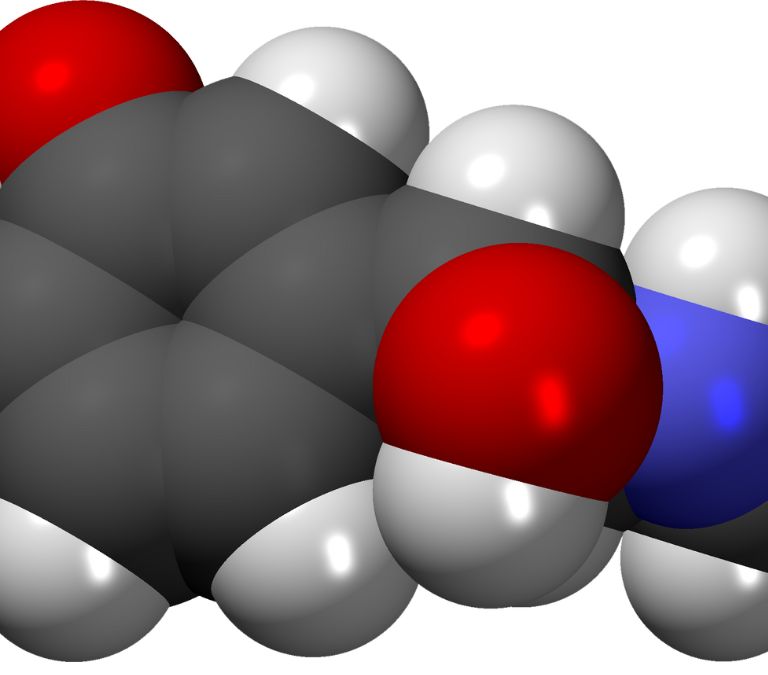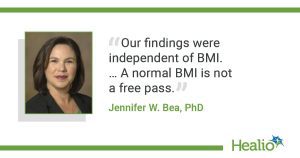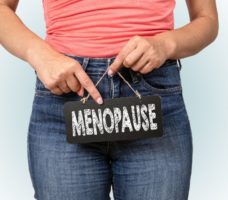As women approach menopause, they gradually start to experience several menopausal symptoms. Some popular symptoms include hot flashes, mood swings, weight gain, and reduced metabolism.
Women who undergo menopause would inevitably experience weight gain. Most folks associate weight gain and loss with calories and workout routines. However, recent research has proven that a hormone called leptin is one of the major factors influencing weight.
Leptin is a hormone produced by adipocytes (lipocytes and fat cells) and enterocytes in the small intestine. This hormone helps actively regulate your energy balance by preventing hunger. Leptin plays a crucial role in maintaining your long-term body weight.
Since the main function of leptin is to regulate your energy by preventing hunger, a lack of the hormone would cause you to feel hungry and eat more food than your body needs.
Leptin resistance occurs when your body stops responding to the signals transmitted by the hormone. When this happens, your body has no active hormone to regulate your hunger and thirst for food.
Leptin doesn’t necessarily regulate how much food you take. Rather, it acts as a signal or a flag to alert your brain whenever it needs to eat to prevent hunger.
When you go through menopause, the level of hormones in your body naturally reduces. The lower the amount of estrogen your body produces, the lower the amount of leptin your body produces.
As your menopausal symptoms progress, your leptin sensitivity reduces, destabilizing your hunger hormones. If you’d like to know how you can help deal with leptin resistance, stick around. We’ll discuss some of the most common factors causing leptin resistance, some symptoms, and remedies you can apply to deal with leptin resistance.
Why Does Leptin Decrease During Menopause?
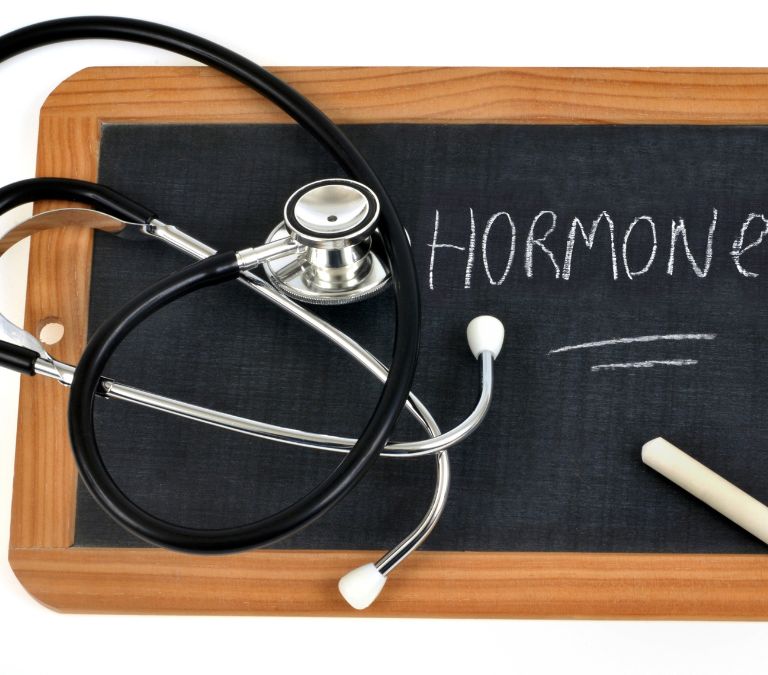
During menopause, leptin isn’t the only hormone that decreases. Throughout your menopause phase, you’ll experience a steady decline in your general hormonal levels. As you grow older, the ovaries won’t be at their peak hormonal production level; you’ll always experience a hormone decline.
As you age, your body produces fewer and fewer hormones because your ovaries become less responsive. Thus, the hormones produced can no longer regulate your progesterone, testosterone, and estrogen levels.
Aside from the fact that leptin decreases because of inevitable hormonal decline, some secondary factors influencing leptin decrease during menopause. They are:
- Stress
Stress is one of the major symptoms of menopause. When you go through menopause, your hormones aren’t as stable as they were. As a result, you’ll react differently to situations and events in ways that might not be favorable to your health.
For your body to cope with stress, it produces cortisol. The major duty of cortisol is to ensure that your body copes well under stress. However, estrogen is the hormone responsible for regulating cortisol levels.
Stress management becomes very difficult if the estrogen your body produces is insufficient to regulate your cortisol levels.
- Lack of sleep
Lack of sleep is another reason why your leptin levels are decreasing. The amount of leptin concentration in your body greatly depends on the energy balance you have, and what is a more efficient way to regain energy than sleep?
Leptin levels increase significantly during sleep(night or day). Leptin requires sufficient energy from your body to help regulate your hunger and appetite. Therefore, if you’re not getting enough sleep, your body will lack the energy to regulate your hunger and weight.
If you’re not getting your required sleep hours, you’ll experience an increasing decline in your leptin levels.
- Eating The Wrong Food
Leptin helps in regulating your energy balance and weight. However, continuous intake of an unhealthy diet can help create diet-induced obesity. When this happens, the leptin concentration in your body becomes incapable of regulating your energy balance.
An unhealthy diet plan impacts your leptin levels and your entire hormonal coordination. Your hormones are already experiencing a downward turn; unhealthy eating would only worsen it.
What Foods Should I Avoid If I Am Leptin-Resistant?

If you’re leptin-resistant, there are a bunch of foods you should avoid if you want to remain healthy. In the first place, the cause of your problems was overeating, which led to diabetes. So, why would you continue unhealthy eating if you want to cure your leptin resistance?
Since leptin was discovered in 1994, we’ve witnessed several improvements in medicine and the food industry. So if you’re leptin resistant, what foods should I avoid?
Well, there isn’t a general rule book banning foods for leptin-resistant patients, but you should avoid the following foods on a general scale.
Foods Filled With Carbohydrates
Contrary to common beliefs, eating carbs doesn’t make you fat. Many influencers and celebrities are like, ‘I don’t eat carbs. This principle works for them, but more logically, there is no such thing as bad or good carbs; it all depends on how you regulate them.
Of course, certain foods are more nutrient-packed than others, but that doesn’t mean that others not as nutrient-packed are bad carbs.
However, when you eat carbohydrates, enzymes in your body are tasked with breaking down those nutrients so that they are easily digested into your small intestine.
When you’re younger, your body could complete this enzyme digestion in quickly, but as you approach menopause, your body won’t be as high-performing as it was, causing a build-up of disaccharides and polysaccharides.
Therefore, we won’t tell you to avoid carbs outrightly, but you should eat them on a regulated level to ensure that your body completely breaks down the nutrients in your body before taking in more.
Sugar-filled foods

Excess sugar consumption doesn’t just result in leptin resistance but can also lead to diabetes. To avoid leptin resistance, regulating sugar consumption is always a good idea.
Additives
Even if you’ve successfully regulated your sugar and carbohydrate intake, additives still have a way of sneaking into your daily diet. Additives are added to canned food, snacks, or dairy products that contain large amounts of fatty acids.
When you consume such products loaded with additives, your body gradually builds up a residue of undigested acids, which is not helpful when dealing with leptin resistance.
Products like bread, beer, cake, cheese, puddings, etc., contain many additives. If you want to deal with leptin resistance, you should reduce your intake of additives.
Does Fasting Help Leptin Resistance?
If you want to deal with leptin resistance, you should be ready to explore both medical and non-medical treatments. Fasting is one of the most effective non-medical treatments you can easily apply to help treat leptin resistance.
There are two ways you can apply fasting when trying to cure leptin resistance. They are;
Starvation
When most folks try to lose weight, they think that constantly starving themselves would help them on their journey to weight loss. They’re about 40% right because they would lose weight, but prolonged starvation would have more negative effects compared to the benefits of simply losing weight.
If you’re suffering from leptin resistance, fasting is a great way to burn out all the excess food quickly your mind has been forcing you to take. However, malnutrition can greatly disrupt your immune system, weakening your level of protection from illness.
The main function of leptin is to tell your brain that it has enough energy needed for work. In turn, your brain relays a response that reduces your food appetite. However, when you starve yourself continually, your brain starts lacking the energy needed to relay functions to your body, and soon you’d experience massive changes to your endocrine system.
Regulated fasting
If you’re choosing the fasting route, you should do it according to your body capacity. Because your best friend is going 24 hours doesn’t mean you can. If you want to starve yourself to deal with leptin resistance, you can consult your doctor to find an appropriate routine that keeps you healthy while curing your leptin resistance.
How Do I Get Rid Of Leptin Resistance?
You can take a couple of steps to ensure that you reduce the effect of leptin resistance to the minimum but not eradicate it. The following are some ways you can get rid of leptin resistance:
Avoid Eating Excess Food At Night
Eating late isn’t necessarily unhealthy because there’s no scientific backing or regulation stating when you should stop eating. But if you’re struggling with weight gain and leptin resistance, eating late foods isn’t your best bet.
We all perceive that late-night food causes weight gain, but the weight you gain depends on how much you eat. Whether you ate it by 2 pm or 10 pm doesn’t change the quantity of food you ate.
Suppose you eat 6 pounds of pizza in the morning; it’s the same as eating it in the night or the afternoon. The weight you gain doesn’t depend on the time of consumption but rather the amount of food consumed.
If you’re ever going to eat at night, make sure it’s as light as possible. Don’t eat a full-course meal at midnight; it won’t help, especially if you suffer from obesity and leptin resistance.
Get Enough Sleep
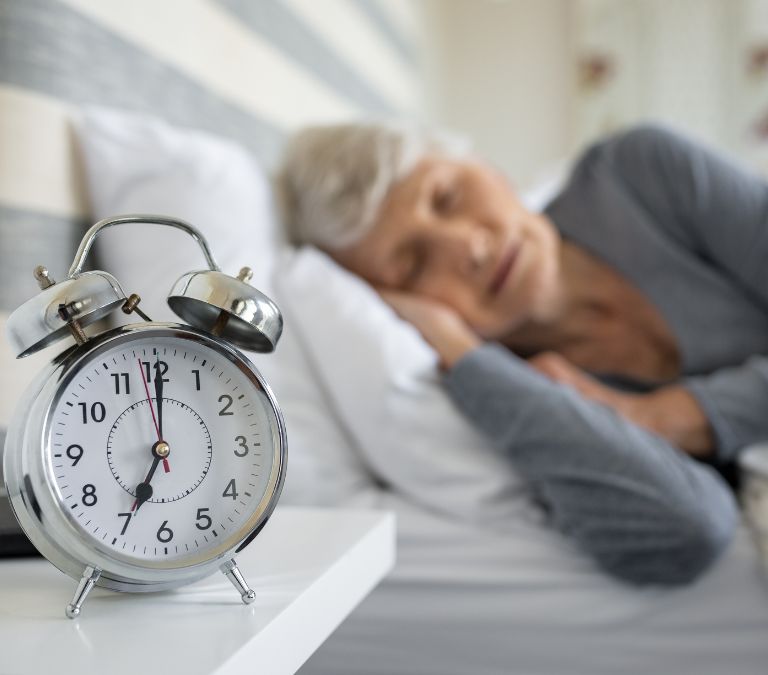
Sleep has a major implication on your leptin levels. Your body needs the energy to break down foods. If you don’t get enough sleep, you make your digestive systems powerless to do their jobs.
Likewise, your brain. Remember that leptin resistance is caused when the brain can no longer relay information to the brain on when to stop eating. If your brain is not well rested, you won’t be able to process information as quickly as you should.
Sleep is very vital not just in your quest to cure leptin resistance but also instrumental to your overall well-being. If you want to help push your cause to cure leptin resistance, ensure you get adequate sleep.
How Many Calories Should Eat To Lose Weight During Menopause?
The calory to eat is probably the question of every woman going through menopause. Menopause is traditionally associated with weight gain. To ensure that you stay fit and healthy during this phase, you’ll need to eat the right amount of food.
There isn’t a standardized way of calculating how many calories you should take, but the Academy of Nutrition and Dietetics put together a plausible ratio that recommends that, on average, a woman going through menopause should eat 1,200 calories per day to maintain her weight.
Eating 1,200 calories a day has so many benefits both to your health and to your weight loss journey. Women who are overweight and simultaneously going through menopause have a higher chance of developing chronic diseases like diabetes.
Likewise, menopausal women who lose weight are less likely to experience menopausal symptoms like hot flashes, night sweats, etc.
So how do you calculate your meal to total up to 1,200 calories a day? In 2010, the Dietary Guidelines for America developed a 1,200-calorie meal plan to help women plan their food courses.
This guideline included a cup of fruit, 4 ounces of grains, protein up to 3 ounces, 4 teaspoons of oils, two and a half dairy foods, one and a half cups of vegetables, and a bonus of 121 calories that can be anything you choose.
Does Hormone Replacement Therapy Help With Leptin Resistance?
Leptin resistance has a lot of negative side effects, from weight gain to excess food intake and a lot more. So how do you treat leptin resistance? Well, there are many natural and supplementary ways to deal with leptin resistance, but hormone replacement therapy is very common.
When women go through menopause, symptoms like hot flashes, weight gain, stress, mood swings, etc., are bound to surface. These symptoms aren’t permanent, they go away with time, but during this symptomatic phase, it can be a real hell for some women; that’s where hormone therapy comes in.
Hormone therapy involves taking medication or supplements that contain female hormones. The most common hormones you’ll be supplementing for are estrogen and progesterone.
You’ll need to supplement estrogen because it’s responsible for metabolism, which greatly affects leptin production. If you’re currently experiencing leptin resistance, your estrogen levels are declining.
So, to answer the question – does hormone therapy help with leptin resistance? Yes, it does. HRT is very helpful to women suffering from leptin resistance. However, hormone therapy doesn’t cure leptin resistance; it helps you improve your weight management capabilities by regulating your hormonal and energy balance.
Leptin therapy is suitable for women who suffer from obesity, diabetes (type 1 and 2), and, most recently, patients with generalized lipodystrophy. Hormone therapy is divided into two main types; Systemic Hormone Therapy and Low Dose Vaginal Products. These two types of hormone therapy are effective, and the doctor must recommend each before taking them.
Systemic Hormone Therapy contains a higher dosage of estrogen that is distributed throughout the body in pills, skin patches, cream, or spray. This type of therapy remedies all kinds of menopausal symptoms. Low Dose Vaginal Products contain a minute dosage of estrogen and can be used to treat mild menopausal symptoms like vaginal and urinary symptoms.
If you’re experiencing severe menopausal symptoms, systemic hormone therapy would be more effective compared to low-dose vaginal products.
When your symptoms are at their peak, your estrogen levels are at their lowest; at this time, you need a higher concentration of estrogen. While if you’re experiencing minor vaginal or urinary symptoms, there’s no need to go for systemic therapy; any low-dose vaginal product should do the trick.
Take note that you should not take hormone replacement therapy as a habit. Studies have shown that women who take hormonal therapy replacement for more than a year stand a higher chance of getting breast cancer.
Does Cognitive Behavioral Therapy (CBT) Help With Leptin Resistance
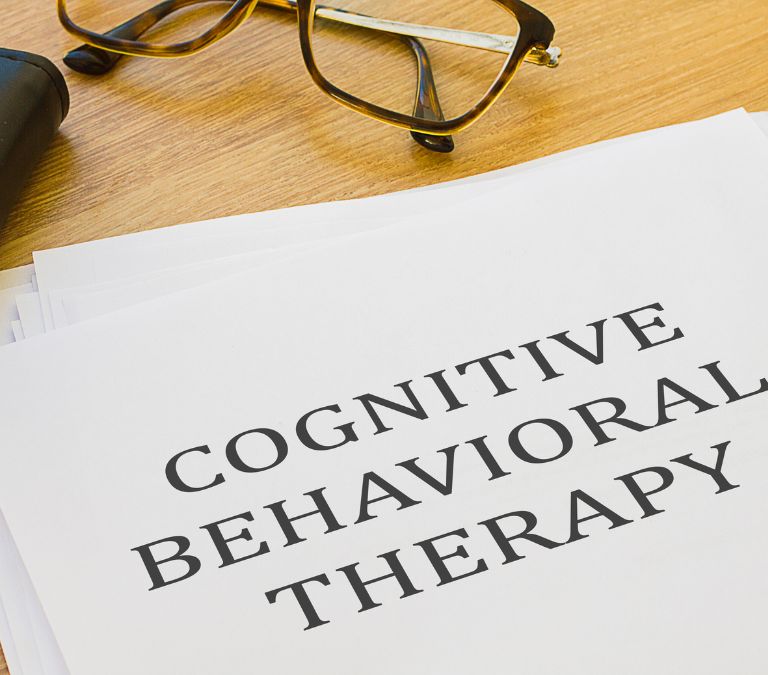
Cognitive Behavioral Therapy (CBT) is a treatment developed to help treat obesity by combining a range of traditional and medical procedures. It’s a psychological treatment that aims to cure ailing patients by first healing their minds.
Cognitive Behavioral Therapy thrives based on the principle that most health problems arise from unhealthy thinking. One symptom of menopause that drives our mind is a lack of self-esteem and depression; CBT can help heal your mind of negative thoughts that impede your mental health.
Since leptin is responsible for regulating your food intake and energy use, a decrease in your leptin concentration would cause an increase in fat cells, leading to obesity. Leptin resistance can lead to excess food intake and fat accumulation.
Unlike minerals or vitamins in our body, leptin cannot be taken as a pill or infused into your system. Surprisingly, leptin supplements don’t contain any leptin at all. Instead, they’re filled with food depressants like caffeine that help to suppress your appetite.
So, if you don’t want to take leptin supplement treatment, Cognitive Behavioral Therapy can help you deal with leptin resistance. Cognitive Behavioral Therapy can be very efficient in treating leptin resistance because the main function of leptin is to relay signals to your brain indicating how much fat is stored in your body.
So what better way to treat a mind-related problem than through psychological therapy? Most folks use cognitive behavioral therapy to treat PTSD, depression, anger, etc. because they’re diseases of the mind; the same goes for leptin resistance.
If you train your mind to stop eating when your body fat saturation is reached, your weight loss journey will improve significantly. CBT helps patients improve their eating habits, goal-setting skills, social interaction, etc. Once you’ve fully understood your goals, you can work towards positively implementing them.
Weight gain is the most visible symptom of leptin resistance. If you can work on weight management, you’ll reduce leptin resistance indirectly. Cognitive Behavioral Therapy can be personalized or taken with a group of like-minded individuals.
In a random study, 88 obese patients received behavioral therapy; over 12 months, they lost over 15% of their initial body weight. This treatment isn’t a pill or a drug you take for a quick fix. Cognitive Behavioral Therapy is a treatment meant for long-term weight loss.
Aside from losing weight, cognitive behavioral therapy can also help cultivate healthy eating habits. Most obesity cases are caused by an unhealthy diet, thus leading to leptin resistance. If you enroll in a CBT program, you’ll be taught and guided on the best diet to help you fast-track your weight loss journey.
Cognitive behavioral therapy is also an efficient way to ensure that patients don’t relapse during their weight loss journey. Leptin resistance is a disease of the mind; your brain constantly urges you to eat more even if you don’t feel the need to eat more.
However, enrolling in a Cognitive Behavioral Therapy program ensures you don’t succumb to the temptation of relapsing during your weight loss journey.
Conclusion
Leptin resistance is a very important health risk that could result in many secondary problems. Alongside obesity, these two are a recipe for an unhealthy menopausal journey. If you’ve been struggling with leptin resistance, read through this article, take some highlights and try implementing some of our tips and recommendations.
You cannot eradicate leptin resistance, but with the right treatment and attitude, leptin resistance can be just another event in your history books that is long gone.

